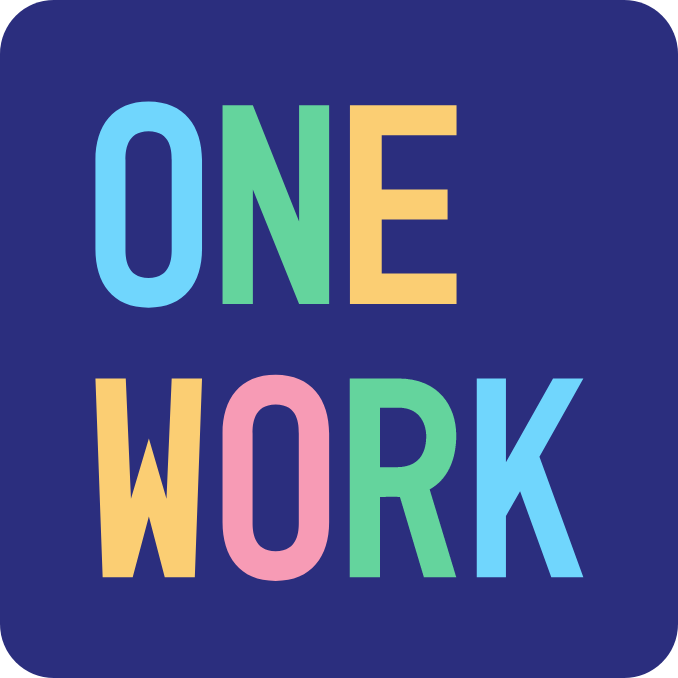No. 152: People v. Power Projects
An Oregon resident has leveraged environmental laws from the 1970s to systematically challenge renewable energy projects across rural communities.

It isn't easy getting a renewable energy project off the ground, but legislation in some states makes it exceedingly easy for the public to appeal and delay projects indefinitely.
That's the case in Oregon where one resident has spent decades opposing energy projects in an effort to protect rural lands – environmental impact in its own right, but one at odds with the state's efforts to reduce its fossil fuel footprint. We're digging into why this is possible in Oregon and what can be done about it.
If you care about mental health, be sure to check out this week's featured jobs at an employer making mental health more accessible by connecting patients to providers who take their insurance. I'm also sharing a link to the Climate Week NYC events coming up next month. Most of the events are free and a great way to engage in climate action.
~ Greg
What we're reading
An Oregon resident has leveraged environmental laws from the 1970s to systematically challenge renewable energy projects across rural communities. (ProPublica)
- Back in the 1970s, Oregon lawmakers created burdensome siting processes to hamper nuclear power development in the state. It gave the public a bigger voice in where these projects could be built, and projects were essentially appealed and delayed so long that they fell through.
- Fast forward five decades, and Irene Gilbert has leveraged those same public accountability measures to challenge wind farms, solar projects, and transmission towers – collateral damage that lawmakers couldn't have predicted at the time.
- According to the Oregon Department of Energy, Irene has filed more challenges than anyone else in the state, including lawsuits. She also provides advice to other people who are fighting energy projects in their own regions.
- Lest we go after Irene, her intent is to protect rural and agricultural lands – not wholly incompatible with environmental impact, but a great example of how social impact endeavors are sometimes at odds with each other.
- Irene's story is just one example of how Oregon and other progressive states are discovering their historical protections now conflict with social impact goals.
- Given its political leanings, you might be surprised to find that Oregon is in the middle of the pack with regards to renewable energy production. That's despite its clean energy targets that aim to phase out fossil fuels for electricity production by 2040.
- Oregon has made some legislative improvements, including one that fast tracks lawsuits to the state's Supreme Court. That essentially eliminates the appeal cycle – the kind of delays that tanked nuclear power in the past, which, as you know, is seeing quite the resurgence of interest.
- So how do we build the infrastructure needed for climate action while respecting legitimate community concerns? Steamrolling the opposition isn't sustainable, but neither are indefinite delays when we're already falling behind on our climate goals.
- The market demand is there, both supply and demand – consumers want the cheaper energy that renewables provide, and companies are still building renewable energy projects and partnering with other companies with increasing energy demands.
- I'd say it's up to legislators to streamline the process. We've talked before about how permitting at the national level has held up renewable energy projects – the regulatory environment is a nationwide challenge right now.
- For another example of this kind of public engagement, check out the story of a man who submitted more than one book ban challenge per day in Clay County, Florida.
Job of the week
The pandemic put a spotlight on mental health, and people started opening up more about their challenges – the sort of invisible weight a lot of us carry on a daily basis. With increased awareness came increased demand for mental health services, but therapy – if you can even find an available therapist – isn't always covered by insurance, making it challenging for people to get the support they need.
The featured company this week, Headway, is trying to change that. They help people find therapists that are covered by their insurance, which greatly reduces the cost of care. You can find a substantial number of mid- and senior-level job opportunities on their careers page, including Director of Product, Content Marketing Manager, and HR Business Partner. Onsite roles are based in New York, San Francisco, and Seattle, but many of them are also remote-friendly.
Community roundup
- Sunrun ran a virtual power plant test with over 100,000 households last month that generated enough energy to cover half the peak demand of San Francisco. (Inside Climate News)
- The idea is that homes with battery storage return stored energy to the grid during peak demand to reduce the strain on the electrical grid. Consider solar energy which is dominant during the day: batteries can recharge on renewable energy during the day then offset peak demand in the evening when energy demands are higher.
- Tlingit crew members are detonating explosives to remove culverts in Tongass National Forest, the nation's largest, to restore habitats and streams. (The Guardian)
- Tongass is the forest subject to the recent plan to remove Roadless Rule protections, which creates new logging opportunities in Alaska.
- Researchers conducted a small vaccine trial that helped prevent the recurrence of pancreatic cancer, which has a low 5-year survival rate. Part of why this is so promising is because the vaccine wasn't customized to the patients who took it – that could make it easier to manufacture and distribute. (Axios)
- There's still a significant research effort into mRNA vaccines for cancer, which would be more customized.
- Chicago's streets are now home to a new fleet of electric garbage trucks, partially paid for by a commercial EV rebate program. Similar trucks have been deployed to Madison, WI as well. (Electrek)
- I especially love this perk: "The electric powertrain provides quieter operation for early morning routes."
- If you've ever woken up to the sound of trash pickup, you know how nice this is going to be when the technology goes nationwide.
- B Lab UK conducted a brand awareness survey that showed that almost two-thirds of respondents used the Certified B Corp designation to inform buying decisions. (Forbes)
- B Corps have gotten much more plentiful over the years, and awareness has certainly improved. My gut instinct tells me that result is skewed high though.
- Even if the survey results reflect respondents who are more values-aligned, it's still a promising trajectory: that's a 7-point improvement in the results since 2022.
Civic corner
- Colorado has passed a first-in-the-nation law that requires a warning label for gas stoves describing the potential air quality impacts. (Fast Company)
- Part of what makes this interesting is the focus on personal health. It differs from other gas-related legislation, which tends to focus on burning fewer fossil fuels due to the resulting greenhouse gas emissions.
- Take Massachusetts for example: the state's existing natural gas policy helped subsidize new natural gas connections by passing along the cost as rate increases for existing customers. They've since updated that policy to eliminate the subsidies, which may discourage future gas connections.
- Leaders were unable to reach agreement on a plastic pollution treaty last week. The sticking point is related to where improvements should be made: reducing production upstream or improving recycling and recovering downstream? (Axios)
- It kind of reminds me of the carbon credit debacle or carbon capture technology. I do think there's a place for them, but we should be lowering our carbon emissions, not just offsetting or capturing them like waste.
- Plastics are rarely recycled, and advanced recycling efforts have yet to show substantial benefits. Then there's the whole matter of training consumers, unless there's a way to improve the separation of plastics from other waste once it gets to landfills. It's a challenging problem to be sure.
- You might remember from No. 142: Community Air Monitoring that Louisiana has a law that essentially prevents community groups from monitoring air quality and holding polluters accountable. That's why I'm optimistic about an effort out of Chicago to install hundreds of high-quality air monitoring systems – the sum total will rival the world's largest air monitoring network. (Inside Climate News)
- The monitors will track air quality and data could be used for accountability measures. There's a secondary benefit, however: it will help the city with zoning.
- The City of Chicago should be able to map pollution data on top of zoning data to see the impact of industrial zones on air pollution. To that end, I'm curious to see if the results could be adapted to other cities that don't have their own air monitors – I'd love to see more sharing of best practices at the local level.
Hot job opportunities
- Sr. Brand & Creative Operations Manager – GoodRx – Remote
- Administrative Assistant – Invenergy – Denver, CO
- Customer Success Manager – Benchling – Boston, MA
- Engineering Lead (Platform) – Ethic – New York, NY
- Senior Product Manager, Buy & Track – Thrive Market – Remote
- Lifecycle Marketing Manager – Rula – Remote
- Program Assistant – CIVHC – Denver, CO
- Accounting Manager – BrainPOP – Remote
- Sales Enterprise Account Executive, Social Impact – Blackbaud – Remote
- VP, Revenue Marketing – HopSkipDrive – Remote
Resource of the week
Before you finalize your plans for September, consider looking over the Climate Week NYC events next month. Climate Week NYC is September 21-28, and there's a huge list of in-person and virtual events occurring that week. Most of them are free as well – sometimes I'll come across a conference with a rather prohibitive cost, but this is a great way to engage with climate topics without breaking the bank.
You'll find the agenda here, the event search here, and – for those who can't wait – 2024 sessions on demand here.
Test your knowledge
Last time around, I asked you to guess which organization became the first humane society in the United States. It's the ASPCA, and it was founded way back in 1866 in New York City – not even 100 years into the birth of our nation. Horse welfare features prominently in their early years, but the ASPCA we know today supports animal welfare more broadly: not just cats and dogs, but livestock, horses, and other animals. They're also hiring, by the way.
This week, I'm quizzing you on something a bit more recent:
Who developed the first successful polio vaccine in 1955?
Email me your guess, and I'll send one lucky winner a couple of One Work stickers!
I drove up to Bellingham, WA and North Cascades National Park last weekend to visit Diablo Lake, and I stopped off for a drink at Aslan Brewing Company afterwards. Turns out Aslan is a Certified B Corp, so that was a nice surprise. If there's something worth drinking up though, it's these views. Worth protecting, don't you think?

